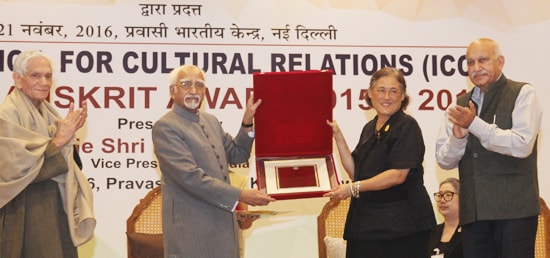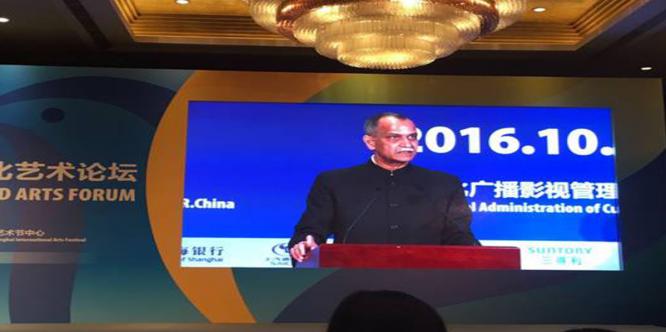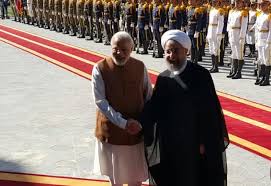
Toasting India-Thailand Sanskrit Bonding: Honouring Princess Sirindhorn
It was a time for Indo-Thai cultural bonding. Sanskrit and sanskriti (culture) blended beautifully as Thailand’s Princess Maha Chakri Sirindhorn was conferred the first World Sanskrit Award in the Indian capital on November 21.
“The Thai language is very different from Sanskrit. But culturally it’s very similar,” the Thai princess said after receiving the first Sanskrit award instituted by the Indian Council for Cultural Relations (ICCR). It’s a great honour to receive it from the Vice President of the country. The award included US$ 20,000, a citation and a lapel pin.
Sirindhorn, fondly called by Thais as “Phra Thep” (“princess angel”), has emerged as a top contender for the crown in Thailand after the recent death of the country’s beloved monarch. A well-regarded scholar of Sanskrit, the 60-year-old Thai Princess has served as Royal Patron for the World Sanskrit Conference.
In his speech, Vice-President Hamid Ansari evoked the beauty and depth of the Sanskrit language in which many of India’s iconic religious and philosophical texts were written.
Minister of State for External Affairs M.J. Akbar underscored the effortless spread of Sanskrit to foreign countries over the years, and cited it as an example of India’s soft power. “Sanskrit did not travel with arms and is the first true evidence of what we today call soft power,” he said.

